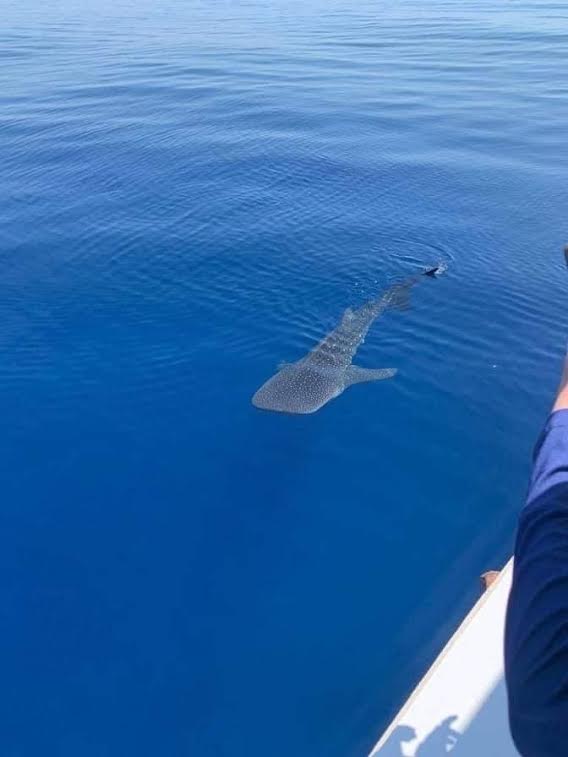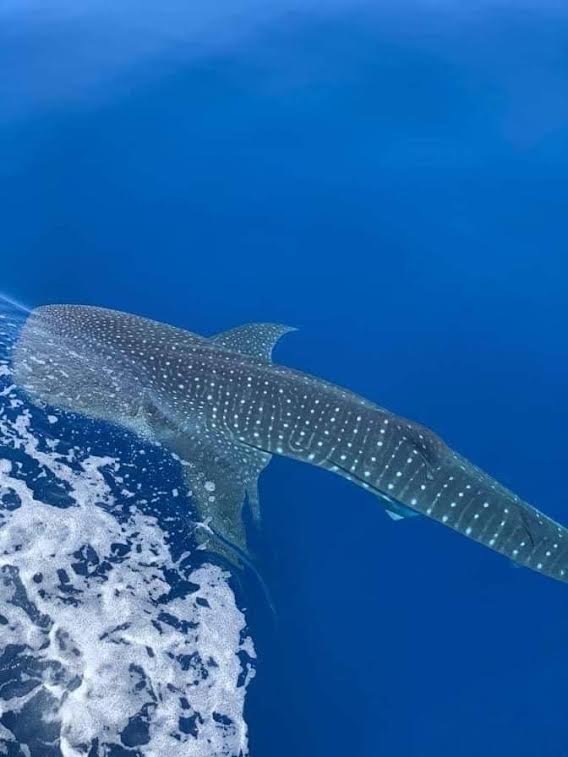
A number of divers have monitored a rare whale shark, known as Bahloul spotted in the southern parts of Marsa Alam, the Red Sea, on Thursday.
In recent years, the rare shark has been seen frequently in various regions on the Red Sea, especially the southern area, which is a major tourist attraction.
Marine specialists have said that the repeated appearance of the whale shark in the Red Sea is a rare and unique event and that not harming or chasing it will encourage it to stay.
The Red Sea Reserves addressed the appearance of this type of fish very professionally.
They also issued a set of guidelines for dealing with it.
After studying the fish well and making sure that it is a migratory fish, which is a very peaceful and human-friendly creature.
Despite the classification of the whale shark under the kingdom of sharks, it is not a predator.
The whale shark preys on marine plankton by drawing a large amount of water, rich in plankton, and then filters it from the water, according to Red Sea Reserves researcher, Ahmed Ghallab.
The Red Sea Reserves recorded the places where the whale shark appeared in the Red Sea.
These locations included the areas of al-Akhawayn Island, between the small and great Giftun Mountains, al-Fanous, and the Elphinstone Reef , he said.
In 2018, a whale shark appeared several times in three different parts of the Red Sea, including Port Ghalleb, al-Fanous, and between the two islands of Giftun, according to Ghallab.
This shark likely entered the sea from the Indian Ocean through Bab al-Mandab to the Red Sea, Ghallab said.
Marine biologists consider the appearance one that demonstrates the success of efforts to protect the Red Sea’s environment.
Egypt continues its commitment to international agreements in this regard, which led the whale shark to settle in the Red Sea.
The whale shark owes its name to its gargantuan size.
The largest adults reaching up to 13 meters in length, making them among the largest species of fish.
As they primarily feed on plankton, they pose no danger to humans.
Hunting whale sharks is banned in Egypt, since the species is endangered.
Concerted efforts have been made to preserve the Red Sea ecosystem, which is the habitat of several other rare and endangered species.
Preservation societies warned against attempting to touch, ride, or chase the whale shark, as well as trying to change the course of its movement.
They urged all divers to allow it to move and act normally and maintain a distance of at least three meters in front of it and four meters from behind it to avoid injury.






